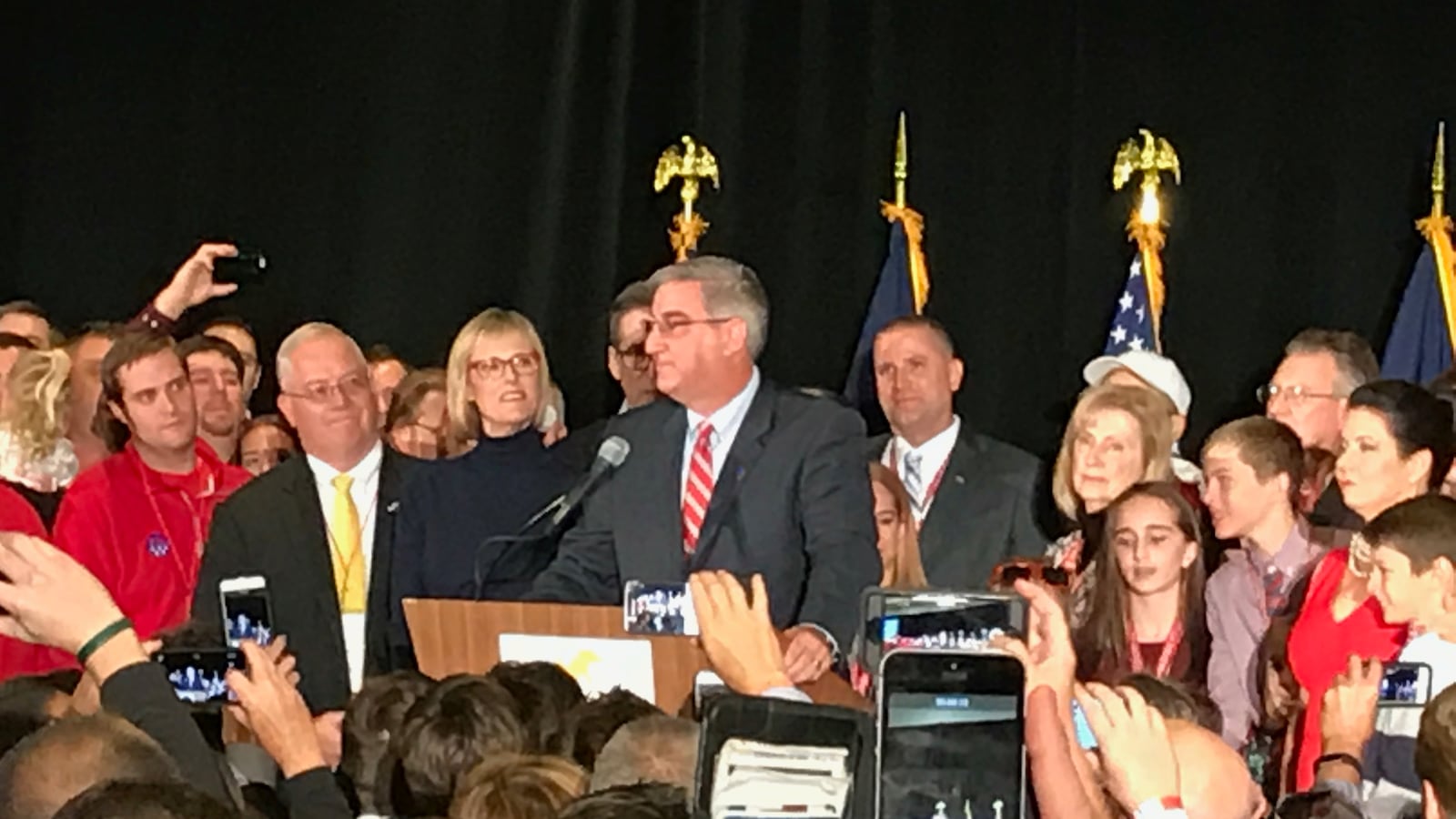Indiana plans to free up $140 million over two years for schools with the goal of increasing teacher pay, Republican Gov. Eric Holcomb pledged Tuesday night in his State of the State address.
The state will tap into its $2 billion in reserves to pay down a pension liability for schools, Holcomb said, reducing schools’ expenses so more money could go to educators.
“Just like paying off your mortgage frees up money in your personal budget, this state investment will save all local schools $140 million over the biennium with continued savings thereafter,” Holcomb said.
He said he hoped schools would use the savings to increase teacher salaries. Lawmakers said after the speech that they would look for ways to make sure local districts direct more dollars to teachers.
The freed-up funding would equate to relatively small raises for Indiana’s roughly 70,000 public school teachers. In a bill seeking designated funds for teacher pay, Sen. Eddie Melton, D-Gary, estimated it would cost $315 million to raise educators’ salaries by 5 percent over two years.
The move to find the money to increase teacher pay comes after education leaders raised concerns over not having earmarked dollars. Holcomb previously suggested that schools use their overall funding, proposed to increase by 2 percent each year, for teachers’ salaries. Other Republican lawmakers have also proposed increasing teacher pay by reducing school budgets in other areas.
Still, the $140 million would come from reduced expenses, not a new influx of state dollars. Lawmakers would still have to approve the move.
“Personally, I think it’s a wise use of surplus,” said House Speaker Brian Bosma, R-Indianapolis.
Against a backdrop of an ongoing teacher strike in Los Angeles and large-scale teacher demonstrations in places such as West Virginia, Oklahoma, and Arizona, Indiana has made addressing teacher pay a top priority in this year’s legislative session. Indiana ranks 18th highest in the nation for teachers salaries adjusted for cost of living, according to an analysis of data from the National Center for Education Statistics and Council of Community and Economic Research — leading some to fear teachers will flee to higher-paying states.
But while the issue has easily won bipartisan support and united unlikely allies, it has proved more difficult to find a solution — namely, the money — that satisfies educators and lawmakers on both sides of the aisle.
“It’s too early to pick a number,” Bosma said, though both Republican and Democratic leaders agreed after the speech that the $140 million — while a “creative” approach — wasn’t enough.
“We can do that this year,” said Senate Minority Leader Tim Lanane, D-Anderson. “We can find a way to give an increase in teacher pay this year. We don’t have to kick the can down the road. We don’t have to say, oh, let’s turn it back over to the local school districts and let them find the money.”
But a meaningful solution could take time: Holcomb also announced Tuesday night the formation of a commission to study teacher compensation and search for ways to improve salaries, with the goal of proposing action in 2021. Business leader Michael L. Smith, an investment fund co-founder and retired Anthem executive, will lead the commission.
“Teachers deserve compensation that reflects one of the most honorable, critical and challenging occupations in the state,” tweeted Lawrence Township teacher Tamara Markey, Indiana’s Teacher of the Year, who was among community leaders invited by House Republicans to provide social media commentary on the speech.
Holcomb’s State of the State speech also emphasized workforce development, including preparing high school students for careers. He introduced Mary Roberson, superintendent of Perry Central Community Schools, to tout the district’s partnerships with local manufacturers to give students hands-on training.
“A strong economy depends on a world-class workforce,” Holcomb said. “That workforce depends on a great education. A great education depends on great teachers.”

